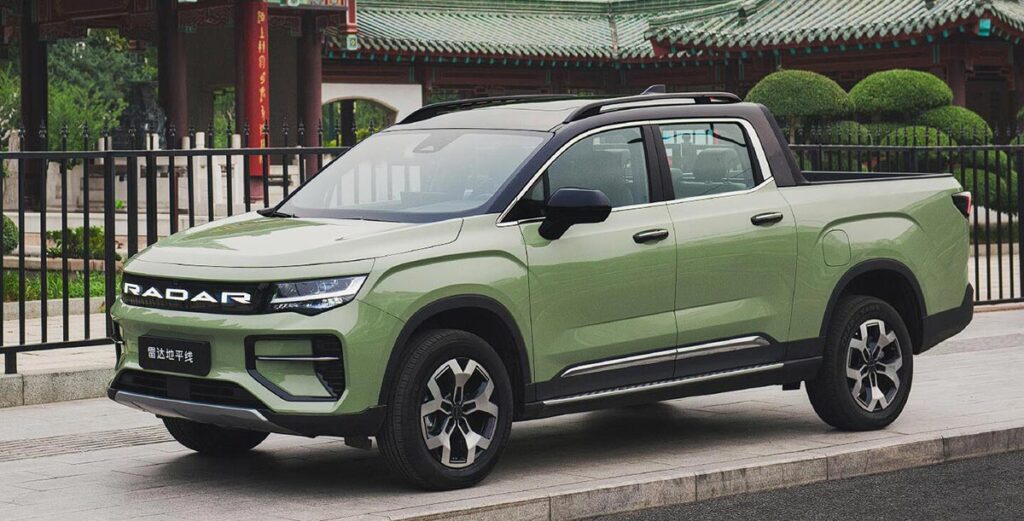Radar’s products will operate in Thailand under the new brand name Riddara and will be presented at the 41st Thailand international auto show, which will be held in November.

Geely’s electric pickup truck brand Radar Auto has set up a subsidiary in Thailand, its first in an overseas market, hoping to capitalize on greater demand for pickup trucks in foreign markets.
Radar announced on July 9 that it opened the subsidiary in Thailand, which becomes its first independently operated overseas market.
Notably, Radar’s products will operate locally under the new brand Riddara and would participate in the 41st Thailand international auto show, which will be held in November, according to a statement.
Thailand is an economy with significant influence in Southeast Asia and ASEAN region, with pickup trucks accounting for more than 40 percent of the local automotive market, selling far more than SUVs (sport utility vehicles) and sedan models, Radar said.
Thailand’s electric vehicle (EV) sector is growing rapidly, with battery electric vehicle (BEV) sales reaching 68,000 units annually in 2023, up 405 percent year-on-year, allowing BEVs to increase their market share from 1 percent in 2022 to 8.6 percent in 2023, Radar’s statement noted.
BEV sales in Thailand are expected to reach 85,000-100,000 units in 2024, increasing market share to 10-12 percent, according to the statement.
Geely officially unveiled the Radar brand on July 12, 2022 along with its first model, the RD6 electric pickup truck. The model went on sale in China in November 2022, with first deliveries in the same month.
Radar is an independent brand with its own R&D facility in Hangzhou, Zhejiang province and a production facility in Zibo, Shandong province.
On November 21, 2023 Radar introduced the RD6 at the launch of its first flagship store in Vientiane, Laos, marking the brand’s official entry into the international arena.
The RD6 had a 70.8 percent share of China’s new energy pickup truck market in October 2023, and a 60.7 percent market share in the January-October period, Radar said at the time.
Unlike overseas markets, pickup truck sales are low in China, mainly due to policy restrictions.
On China’s highways, pickup trucks are required to drive in the rightmost slow lane and are not allowed to exceed 100 kilometers per hour. Regular passenger cars can legally go up to 120 kilometers per hour on the highway.
Pickup trucks in China are also required to be used for no more than 15 years and need to be scrapped at the end of that time.
In addition, many Chinese cities have restrictions on pickup trucks entering urban areas, although those restrictions have been scaled back over the past few years.
In May, China sold 45,000 pickup trucks, a mid-to-high level for the past five years, the China Passenger Car Association (CPCA) said in a June 27 report.
By comparison, retail sales of passenger cars, including sedans, SUVs, and MPVs (multi-purpose vehicles), amounted to 1,711,265 units in China in May.
($1 = RMB 7.2757)
Become A CnEVPost Member
Become a member of CnEVPost for an ad-free reading experience and support us in producing more quality content.

